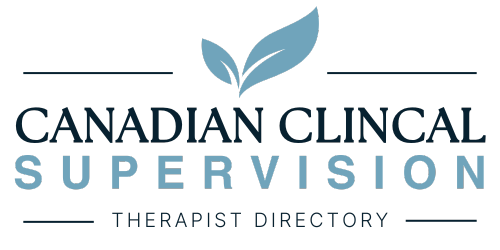If you’re a registered social worker in British Columbia (BC), you might be wondering how to advance your career and become a Registered Clinical Social Worker (RCSW). This step requires meeting specific criteria set by the British Columbia College of Social Workers (BCCSW). This article is an interpretive review for how to become an RCSW in BC including an overview of the process, costs, and requirements to help you navigate the journey.
Please be advised that this article is not written on behalf of or for BCCSW and has not been reviewed, approved, or endorsed by BCCSW in any way. See full disclaimers below.
What is a Registered Clinical Social Worker?
A RCSW is an advanced designation for social workers in specific Canadian provinces. In BC, only individuals who have successfully completed the RCSW registration process, are added to the Clinical class, and may use the designation “Registered Clinical Social Worker” or “RCSW” (BCCSW, n.d.1). Through the designation as clinical social workers they are recognized as being qualified to use the Diagnostic and Statistical Manual of Mental Disorders (DSM) to make a mental health diagnosis (Canadian Association of Social Workers, n.a.; BCCSW, 2021).
Steps to Become a Clinical Social Worker in BC
To become an RCSW in BC, you must meet eligibility requirements. Currently, these include the following requirements:
Obtain Your RSW Designation: Begin your journey by securing your Registered Social Worker (RSW) designation. This requires completing the necessary educational and professional prerequisites to be in good standing with the BCCSW (BCCSW, n.d.2).
Earn a Master of Social Work (MSW): A Master of Social Work (or an equivalent graduate degree in a related field) with specific course work as outlined in the BCCSW bylaws is essential for clinical class registration. Look for programs accredited by the Canadian Association for Social Work Education (CASWE). Consider programs offering specializations in clinical practice to align your studies with career goals.
Complete the Required Clinical Experience: Accumulate at least 3,000 hours of supervised clinical social work experience over a minimum of two years. These hours should include direct client contact, clinical assessment, intervention, and treatment planning. Keep detailed records of your work, as these will be necessary when applying for the clinical registry (BCCSW, 2022).
Engage in Clinical Supervision: Supervised experience is integral to your development as a Clinical Social Worker. Choose a supervisor who meets BCCSW qualifications, such as a seasoned Clinical Social Worker or other approved professional (BCCSW, 2021; BCCSW, 2022). Your supervisor will help refine your skills in case formulation, therapeutic techniques, and ethical decision-making.
Apply for the Clinical Registry: Submit your application to the BCCSW Clinical Class of Registration. This includes providing evidence of your completed clinical hours, details of your supervisor’s credentials, and paying the application fee. You’ll also need to pass the Association of Social Work Boards (ASWB) Clinical Exam, which assesses your competency in clinical knowledge and skills. To prepare for the exam, explore resources like the ASWB study guides or join a local study group.
By following these steps, you’ll ensure a thorough and well-rounded preparation for your career as a Clinical Social Worker in BC.
Clinical Social Work Supervisor Requirements
Clinical supervision is an essential component of becoming a Clinical Social Worker in BC, as it ensures candidates receive proper guidance and support while honing their professional skills. To qualify as a clinical supervisor, an individual must typically meet the following requirements:
Professional Standing: Supervisors must be considered an “eligible” referee as per the BCCSW bylaws. According to the BCCSW bylaws, potential eligible clinical supervisor references may include: a RSW, RCSW, physician, or a registered psychological who has knowledge of your clinical practice and who has directly supervised your clinical practice (BCCSW, 2022).
Training and Certifications: While not mandatory, additional training in supervision, such as courses or workshops on effective supervision practices, is highly beneficial. Programs that focus on communication, conflict resolution, and mentorship techniques can further qualify an individual as a competent supervisor.
Understanding of Regulations: Supervisors must have a thorough understanding of BCCSW’s requirements and ethical standards for clinical practice. This ensures they can accurately document clinical hours and provide relevant feedback to candidates.
Approval by BCCSW: In some cases, supervisors may need explicit approval or recognition from the BCCSW to oversee clinical hours. This process might include submitting an application or demonstrating their credentials.
By meeting these qualifications, supervisors not only contribute to the professional development of aspiring RCSWs but also help uphold the integrity and quality of clinical social work practice in BC. Potential supervisors can benefit from exploring professional development opportunities, such as training offered by local social work associations, to enhance their skills and credentials. If you’re looking for a clinical supervisor, search through listings on the Canadian Clinical Supervision Therapist Directory.
Clinical Supervision in British Columbia
Clinical supervision is a cornerstone of professional development for Clinical Social Workers in BC. It provides the critical framework for candidates to refine their skills, apply theoretical knowledge to practice, and uphold ethical standards. Supervision not only ensures the competency of emerging professionals but also strengthens the quality of services offered to clients.
The benefits of clinical supervision are multifaceted. For supervisees, it offers structured guidance on clinical interventions and therapeutic techniques. Supervision provides a safe space for discussing challenging cases, exploring different approaches, and receiving constructive feedback. For instance, a supervisee might problem-solve and reflect upon complex cases, learn best practices, and gain insights for future interventions.
Supervision sessions can take various forms, including individual, group, or peer supervision. In BC, supervisors and supervisees often use a combination of in-person meetings and virtual platforms to accommodate geographic and scheduling constraints. Sessions may involve reviewing case files, discussing client progress, and setting goals for professional growth. Supervisors may also provide resources, such as relevant literature or training recommendations, to enhance the supervisee’s expertise.
The supervisory relationship is equally beneficial for supervisors. It allows them to contribute to the profession by mentoring the next generation of Clinical Social Workers while honing their leadership and teaching skills. Also, navigating diverse cases with supervisees often helps clinical supervisors stay current with evolving practices and challenges in the field.
RCSW Cost Consideration
If you are planning to become a clinical social worker in BC, an important consideration is the cost obtaining and maintaining the designation. In this section, I’ll breakdown the cost of obtaining and maintaining the RCSW designation as of 2024.
One-time Upfront Costs
Clinical Registry Application Fee: $167 CAD as of Sept 1, 2024. This fee covers the initial assessment and processing of your application, ensuring all necessary documentation is reviewed.
ASWB Clinical Exam: $260 USD. This fee is standard across provinces for the ASWB Clinical Exam, which is a critical step in demonstrating your clinical knowledge and readiness.
ASWB Clinical Exam Prep Materials (Optional): $50 – $300+ USD. Investing in preparation materials can significantly improve your chances of passing the exam. Options range from self-study guides to comprehensive online courses.
Additional Annual Costs
Clinical Social Worker registration incurs annual fees of $355.50 as of Dec. 1, 2024. These fees maintain your clinical registration and ensure continued access to resources and professional support provided by the BCCSW.
Continuing Competency Requirements: Cost varies depending on the cost for credit hours.
Comparing Costs with Other Provinces and Professions
When compared to other provinces, the costs for becoming a Clinical Social Worker in BC are relatively aligned with national standards. For example, Alberta’s fees for the clinical registry are quite similar, although provincial registration fees may vary. Additionally, when compared to other advanced professionals such as psychologists, the total investment to become an RCSW in BC is often lower, providing a cost-effective pathway to advanced mental health practice. While the upfront and ongoing costs can seem significant, the long-term benefits often outweigh the expenses.
Conclusion
Becoming an RCSW in BC offers numerous benefits, from expanding your scope of practice to making a deeper impact on individuals and communities by providing an advanced level of care. With the ability to work in diverse settings, Clinical Social Workers have the flexibility to tailor their careers to their passions and areas of expertise, whether in private practice, hospitals, or community agencies.
For those considering this career path, the journey can seem daunting, but the rewards make it worthwhile. The structured steps, including earning an MSW, gaining supervised experience, and passing the ASWB Clinical Exam, ensure that you are well-prepared to handle the complex challenges of clinical social work. The process also provides opportunities for professional growth and development through mentorship and collaboration with experienced supervisors.
To get started, research accredited MSW programs in Canada. Also, reach out to potential supervisors early to establish relationships that can support your clinical experience. If you’re already a Registered Social Worker, consult the BCCSW guidelines to map out your next steps. By taking these actionable steps, you can embark on a fulfilling career as a Clinical Social Worker, making a significant difference in the lives of those you serve. How to become a RCSW in BC involves a series of steps, including earning your MSW, gaining supervised clinical experience, and completing the required application process. While the journey requires commitment and investment, it can lead to rewarding career opportunities as a social worker.
Disclaimer #1
This article is not written on behalf of or for BCCSW and has not been reviewed, approved, or endorsed by BCCSW in any way. This is an interpretative review of available BCCSW Clinical Registry information. For specific questions about the BCCSW’s clinical registry or registration process, please contact the BCCSW directly.
Disclaimer #2
This article is for educational and informational purposes only and is not intended as professional advice. Information is only relevant up to the date it was written and is subject to change based on regulatory or legislative updates.
References
British Columbia College of Social Workers. (2022). BCCSW Bylaws. Retrieved from https://bccsw.ca/wp-content/uploads/BCCSW-Bylaws-January-2022.pdf
British Columbia College of Social Workers. (2021). College Conversation. Retrieved from https://bccsw.ca/wp-content/uploads/College-Conversation-Issue-17-Spring-2021-1.pdf
British Columbia College of Social Workers. (2020). College Conversation. Retrieved from https://bccsw.ca/wp-content/uploads/College-Conversation-Issue-16-Winter-2020.pdf
British Columbia College of Social Workers. (n.d.1). Registrants. Retrieved from https://bccsw.ca/registrants/
British Columbia College of Social Workers. (n.d.2.) Clinical Class Registration. retrieved from https://bccsw.ca/application-information/registration-categories/clinical-class-of-registration/
Canadian Association of Social Workers. (n.d.). 11.1 Frequently Asked Questions. Retrieved from https://www.casw-acts.ca/en/111-frequently-asked-questions#:~:text=Clinical%20Social%20Workers%20hold%20advanced,make%20a%20mental%20health%20diagnosis

